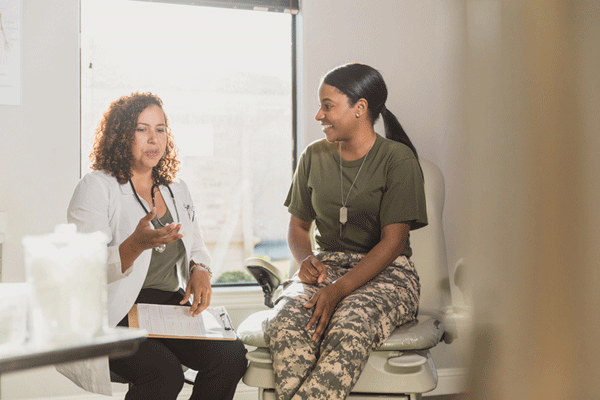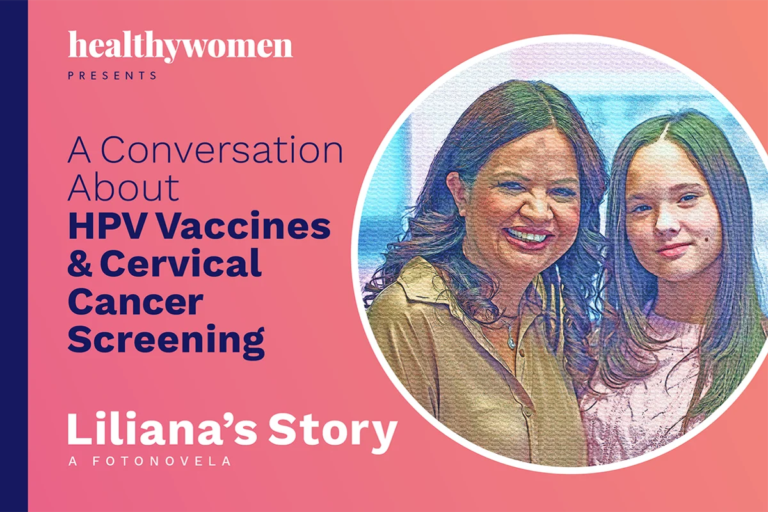Dr. Robyn B. Faye, an OB-GYN with the Abington Primary Women’s Healthcare Group, certified sex counselor and member of HealthyWomen’s Women’s Health Advisory Council, answers our questions about the rising rates of sexually transmitted diseases among older Americans. The interview was conducted via email and edited for length and clarity.
HealthyWomen: According to the Centers for Disease Control and Prevention (CDC), sexually transmitted infections (STIs) are on the rise among the general population. In 2018, there were nearly 2.5 million combined cases, a record high. Can you first speak to the rise in STIs overall? What are some of the causes?
Robyn Faye: That is a hard question to answer. I would not say that I see more in my office just starting in 2018. I would have to say that young people have always been sexual and education has always been lacking. Schools and parents don’t do a good job teaching safe sex.
The older population don’t realize that they can catch things like STIs. They become single after many years of being part of a couple and suddenly forget about safe sex. They might teach it to their kids but forget about it in their own lives. I sometimes even have to remind them to prevent pregnancy. I hear comments, “I am too old for that!” I have to remind them that their body doesn’t know that!
Women may come out of a first marriage or age and transition into a lesbian marriage. All women, including trans women, need STI precautions.
HealthyWomen: According to the CDC, between 2012 and 2016, cases of chlamydia, gonorrhea and syphilis all rose substantially for the age groups 45 to 54 and 55 to 64. What are some of the reasons?
Robyn Faye: The older population only knows about herpes and maybe syphilis; they are ignorant of gonorrhea, chlamydia, HPV, hepatitis, mycoplasma genitalium, ureaplasma and trichomoniasis. And as I said above, they become single after many years of marriage and forget about safe sex. Education was lacking for us in school, and it carries over as we age. Here we are, dating, and don’t have the knowledge tools to keep our bodies safe.
I have to remind my patients to treat their bodies like a shrine and remind them about all the people their partners may have been involved with. The younger generation are easier because there may only be one or two partners, but as we age, there could be more partners than either could keep track or have knowledge of. I do a lot of teaching with my patients!
HealthyWomen: What is the most prevalent STI among these age groups?
Robyn Faye: In the older age group, I see newly diagnosed herpes and HPV.
HealthyWomen: Are these current middle-aged and senior populations more susceptible to STIs than previous generations?
Robyn Faye: Anyone who is sexually active and careless is at risk and may develop a disease. It is not an age-related phenomenon. Be careful, enjoy sex and you won’t get hurt. I tell that to everyone. Age is NOT a risk factor. When women think they can’t get pregnant, they forget about safe sex. That is why I need to remind them about the infections they have never heard about and those they have forgotten about.
HealthyWomen: Do you think these age groups understand the dangers of contracting STIs and/or take the issue seriously enough?
Robyn Faye: Some people do and some don’t. I discuss it with everyone, and I feel that the young think that they are unable to catch anything and when they acquire chlamydia, it won’t affect them. I stress that it can cause infertility but to many, childbearing is too far away in the future to be a concern.
The older person is concerned about herpes because it will make them less likely to find a permanent mate. The concern of HPV is for cancer, as is hepatitis C. If they realize they need to be concerned about infections, they will take precautions.
They are NOT taking precautions because once pregnancy is not an issue, nothing else is as important to them. With my patients, I stress that there are other concerns. We have long discussions and some debates about STIs.
HealthyWomen: For women, what are some of the secondary risks of contracting specific STIs?
Robyn Faye:
- Gonorrhea and chlamydia, mycoplasma and ureaplasma — infertility
- Trichomoniasis — annoying discharge
- Herpes simplex virus — chronic condition, neuropathic pain and ulcers for life
- Hepatitis C — cirrhosis of the liver & liver cancer
- HIV — chronic disease, death
- HPV — cervical, vulva, vaginal, throat & anal cancers
HealthyWomen: Can you speak about the specific risks/complications of untreated syphilis?
Robyn Faye: Untreated syphilis can eventually lead to damage of the brain, eyes, heart, nerves, bones, joints and liver. People can be paralyzed, blind, demented or lose feeling in parts of their body. Untreated syphilis can also lead to stillborn or developmentally delayed babies.
HealthyWomen: It’s important to catch these infections early, but not all show symptoms. How can women protect themselves?
Robyn Faye: We encourage all women to practice safe sex!
HealthyWomen: What are the best preventive measures?
Robyn Faye: Condoms are most important. I emphasize them strongly. Women past childbearing are sometimes resistant . . . for many reasons, including lack of fertility, denial that they have a disease or the ”lovely man must be clean,” or infections are only for the young. I introduce them to other types of safe sex tools such as dental dams and direct them to the CDC’s webpage about dental dams. I also introduce them to underwear that can be used for safe sex to maximize sensation and minimize worries.
Safe sex can be undertaken. It needs to be accompanied by common sense in this day in age. Just like in 2020, we wear a mask.
Resources:
Planned Parenthood
American Sexual Health Foundation
Go Ask Alice!















